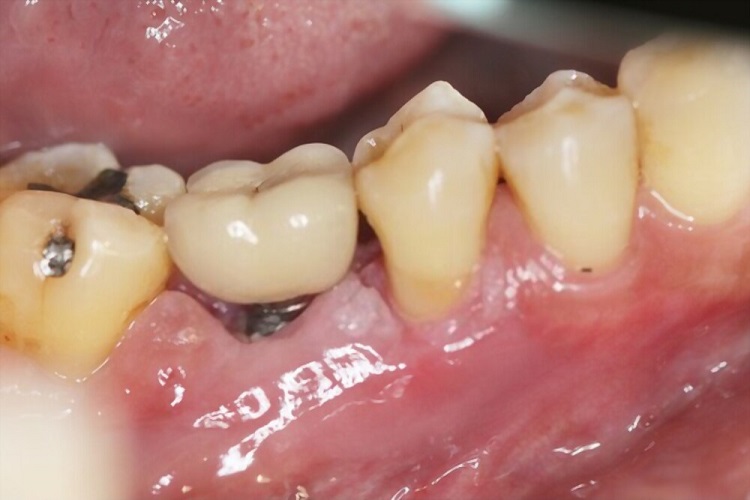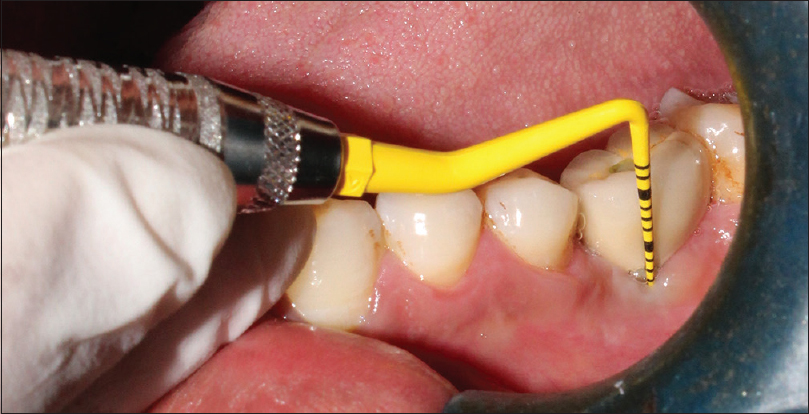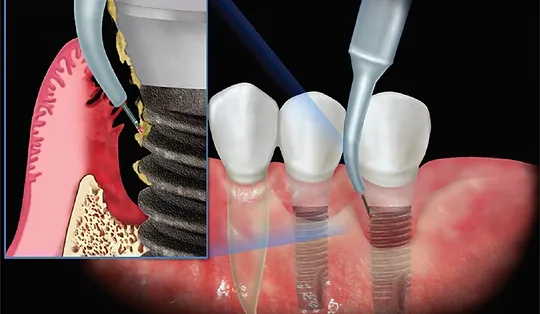- Monday- Friday 10:00 AM - 6:00 PM / Saturday 9:00 AM - 3:00 PM
- 5200 S Archer Ave, Ste 3 Chicago, IL 60632
- Home
- About Archer Dental
- Archer Dental Savings Club
- Special Offers
- Laser Dentistry
- General Dentistry
- Cosmetic Dentistry in Chicago
- Medicare Dentist in Chicago
- Diagnostics
- Dental Cleaning
- Composite Fillings
- Nitrous Oxide
- Bruxism
- Crowns and Bridges
- 3D Cone Beam
- Wisdom Tooth Extractions
- Atraumatic Extractions
- Laser Dentistry Chicago
- Teeth Whitening
- Veneers Dentist Near Me
- Chicago Dentist
- Cracked Tooth
- Implants
- Invisalign
- Braces
- ITero Scanner
- Emergency Dentist
- Contact Us
- Sleep Apnea Treatment
Why Choose Laser Dentist for Implant Surgery
Dental implants are the modern solution to replace missing teeth and laser dentists, like Dr. Anton Zhadovich, are becoming a number 1 choice for placing dental implants. Lasers have many clinical advantages over traditional scalpels and blades. Lasers provide patient with a less painful treatment. Dental lasers also allow dentists to have more precision, which is important for improving the quality of implant surgery.
Dental lasers are medical devices that use precisely focused light to treat tissue. Lasers are safe and are used in many types of medical procedures including TMJ pain relief therapy, sunspot removal, cold sore treatment, tooth whitening, gum disease treatment and many cosmetic procedures.
In this article you will learn everything regarding laser treatments and implants: how laser dentistry can help people who are considering getting dental implants, how laser therapy can help patients who already have implants, what is peri-implantitis, how exactly lasers are beneficial for patients with failing implants due to peri-implantitis and why choose a laser dentist for implant surgery.
What are benefits of lasers during implants surgery?
Compared to traditional dental tools, lasers are considered more safe and gentle. They allow oral surgeons and dentists to accomplish more complex tasks by providing precision, reduce blood loss, decrease post-operative discomfort, reduce the chance of wound infection, and achieve better wound healing so patients are back to smiling as soon as possible.

What are failing implants?
Dental implants can fail in a small percentage of patients. It can happen for a variety of reasons. Sumptomps of failing dental implant are:
- difficulty chewing
- gum inflammation
- gum recession
- gum swelling
- loosening of an implant or a replaced tooth
- severe pain or discomfort
What are peri-implant diseases?
Peri-implantitis is inflammation surrounding dental implants that destroy soft tissues around the implant. Peri-implantitis also leads to loss of supporting bone around the dental implant. The inflammatory process can cause bleeding, deepened pockets and collection of pus between the gum and the bone.
Risk factors for peri-implantitis are similar to those for periodontitis, and include:
- poorly controlled diabetes
- smoking
- poor oral hygiene
- previous history of periodontal disease
Approximately 1/3 of all patients who get implants will experience peri-implantitis. The best way to treat peri-implantitis is to focus on infection control, getting rid of bacteria on implant surfaces, regeneration of lost tissues, and plaque control regimes via mechanical debridement. Laser treatment for peri-implantitis are new, innovative and has been proven to be effective. You can read more about the wide application of lasers in dentistry here.


How does laser peri-implantitis treatment work?
When managing peri-implantisis, dentists usually focus on infection control, detoxification of implant surfaces, regeneration of lost tissues, and plaque-control regimens. Laser is able to accomplish most of those things. The Er:YAG laser is used to remove microbial composition on the implant without damaging it and to treat the damaged bone tissue around the implant. Following Er:YAG treatment, the Nd:YAG laser is used to reduce bacteria and promote biostimulation. Laser treatment is suitable both for peri-implant mucositis and peri-implantitis .
What to expect during laser treatment of peri-implantitis?
Step 1
First, the Er:YAG laser is used to selectively remove granulation tissue. The antibacterial effect of Er:YAG on the surgical site is highly effective and the implant surface is completely cleaned without chemicals. Because the Er:YAG wavelength with Light Walker® is used in an optimal mode, there is no danger of thermal damage to the surrounding bone and no significant alterations of the implant surface, as is caused with other lasers.
Step 2
Nd:YAG laser promotes faster healing by decontaminating and stimulation regeneration of the tissues. This step treats inflammation, swelling, and bleeding of soft-tissue lesions. Most importantly, this step can be handled without surgery, and healthy peri-implant tissue assures greater long-term implant success.
Traditional vs. laser treatment
Laser therapy for peri-implantitis encourages wound healing. It does so by stimulating mitochondria in cells to produce energy (ATP), which helps the wound to heal faster. Additionally, lasers eliminate bleeding by sealing blood vessels, therefore increasing visibility and improving the speed and accuracy of the procedure.
Dental laser is a particularly effective alternative to traditional treatments for peri-implantitis. Traditional removal of affected tissues (also called mechanical debridement) in cases that are mild or moderate, is considered an invasive procedure. Mechanical debridement can be ineffective at removing bacterial biofilm inside the grooves of the implants due to difficult access. It may also cause significant damage to implant surfaces, leaving them more susceptible to biofilm accumulation and decreasing opportunities for osteo-integration. Despite the efforts to maintain good oral hygiene to reduce the chance of infection, the scratched implant surface can become an attractive spot for bacterial growth.
With more advanced cases of peri-implantitis, bone loss and implant failure traditionally require an invasive removal procedure and bone grafting before replacement of the implant. As with any invasive treatment, the patient might experience significant pain and a healing period that can take several months, which undermines patient confidence in both the procedure and the provider.
This is where the advantages of laser therapy become pretty clear.
Lasers:
- Decontaminate the threads of an implant
- Detoxify bacterial growth on the implant’s surface
- Avoid opening flap tissue in mild to moderate cases
- Don't damage the implant surface
- Non-invasively remove the diseased granulation tissue surrounding a failing implant.
Contact Us
Please know that you can always contact our dental team by calling 773-581-1345, making an appointment through the contact form, or stopping by the Archer Dental Chicago office at 5200 S Archer Ave, Ste #3, Chicago, IL 60632.
-
Phone
773-581-1345
-
Working hours
Monday - Thursday 10:00 AM - 6:00 PM
Friday 09:00 AM - 4:30 PM
Saturday 9:00 AM - 3:00 PM
Frequently asked questions
Laser procedures are less painful
Less bleeding during the surgery
Reduced need for sutures
In some procedures anesthesia might not be necessary
Increased rate of wound healing
While dental laser doesn’t make the procedure completely pain-free, it is definitely less painful than traditional methods. Patients will experience less bleeding and might not need anesthesia in some cases.
One symptom of failing implant is peri-implantitis. Peri-implantitis is inflammation of the surrounding gum tissue that can lead to deterioration in the bone supporting the dental implant. Dental laser can be used to treat peri-implantitis to disinfect the surrounding tissue in a safe way. Here are the advantages of using dental laser to treat peri-implantitis
Using laser means non-invasive technique
No overheating of the surround bone saves it from additional damage
Increases regeneration/healing
Reduced inflammatory response
Higher long-term implant success
High precision
Dental glossary
Laser biostimulation
A form of Low Intensity Laser Therapy which improves healing of post operative tissues. The light energy stimulates the metabolic processes, inducing tissue regeneration.
Dentin hypersensistivity
A condition which causes the inner (dentin) layer of tooth to become exposed. This condition can develop as a result of receding gums. Patients experience sharp pain due to pressure or hot/cold beverages.
Crown lengthening
A surgical procedure that reduces gum tissue to expose more of the tooth surface. Some people seek crown lengthening to alter a “gummy smile,” in which the gums are visible above the teeth when smiling.
Peri-implantitis
Inflammatory process that affects soft and hard tissues around dental implants. The soft tissues become inflamed, while the hard tissue (alveolar bone), is lost over time.
Periodontal pockets
Periodontal pockets are spaces between the gum line and the teeth, that have become infected. When left untreated, these pockets can lead to tooth loss. Periodontal pockets are one of the major signs of gum disease.
Frenectomy
Frenulum is a small fold of tissue that prevents an organ in the body from moving too far. In dentistry, frenulum is referred to lingual or labial frenulum. Frenectomy is a process of removing or modifying that tissue.
